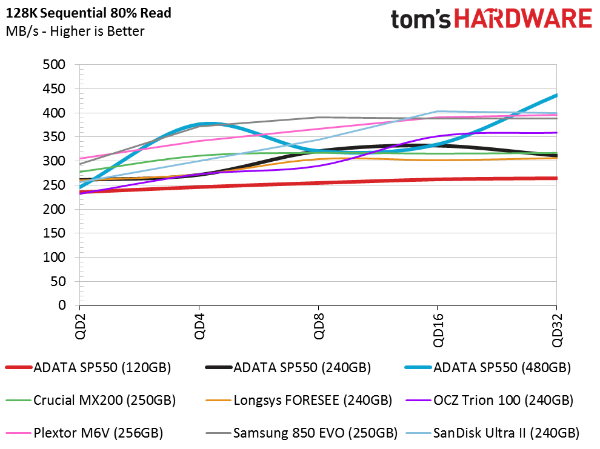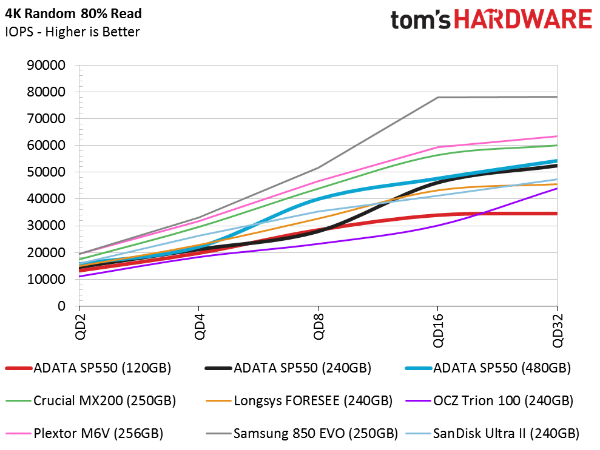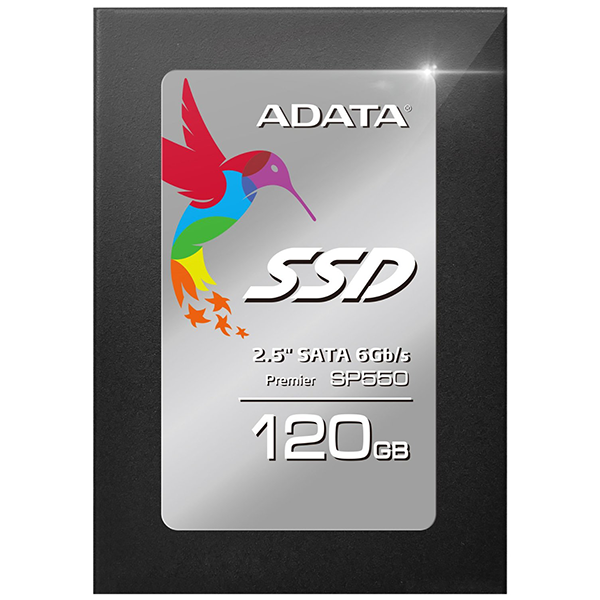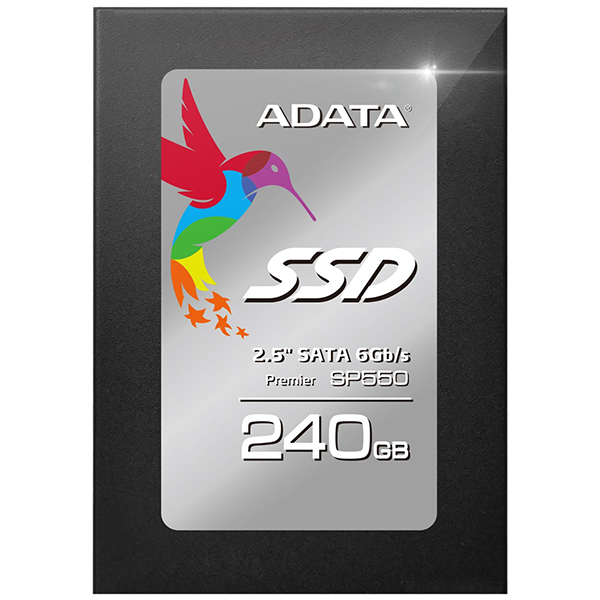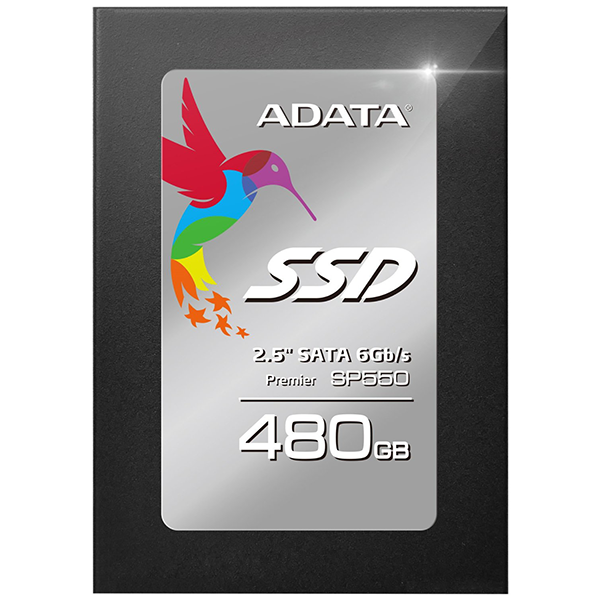Adata SP550 SSD Review
Adata's SP550 is the first SSD to hit our lab with Silicon Motion's new SM2256 controller paired with SK Hynix NAND. But does it compete with Samsung's prolific 850 EVO?
Why you can trust Tom's Hardware
Mixed Workloads & Steady State
80 Percent Sequential Mixed Workload
Our mixed workload testing is described in detail here, and our steady state tests are described here.
The 480GB SP550 starts to pull away from the smaller SP550s in mixed workloads. The SLC buffer still upsets the sequential test, though with only 20 percent writes the effect is not as noticeable. At low queue depths, we again see a large gap between the higher- and lower-performing SSDs. The 240GB SP550 lands in the middle of the pack, but continues to trail the 850 EVO.
80 Percent Random Mixed Workload
This chart confirms what we've come to expect from the SM2256 with regard to random data. The controller, paired with both SK Hynix and Toshiba A19 TLC, can't compete with many of the other low-cost drives. OCZ's Trion 100, armed with a Toshiba controller similar to the Phison S10, also demonstrates poor performance faced with random data. Cost is the big equalizer here, and we'll talk more about that in the conclusion.
Sequential Steady State
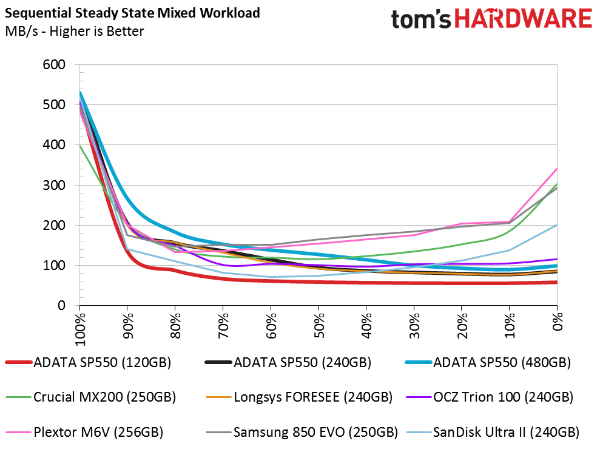
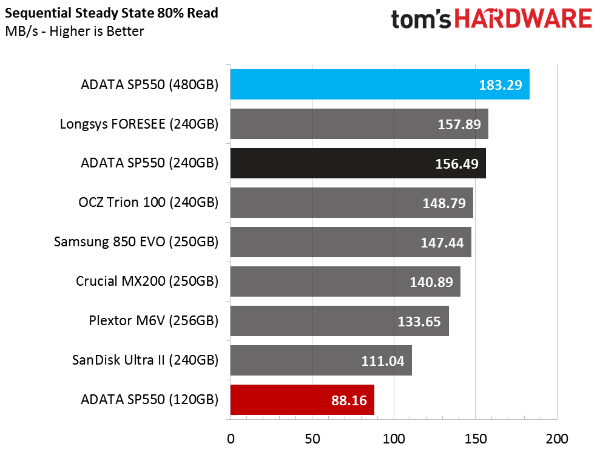
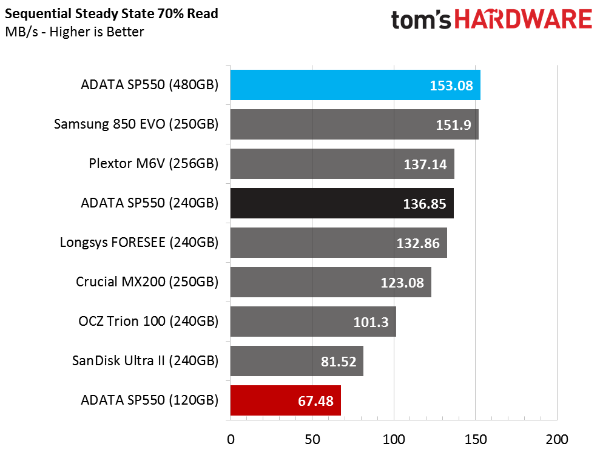
The 480GB SP550 finally hits the top of a chart. On paper, it should be up there in every test. But not even a higher capacity and larger SLC buffer maneuvers the Adata drive past Samsung's market leader in most tests. The 240GB SP550 does fare well in this metric, though.
Random Write Steady State
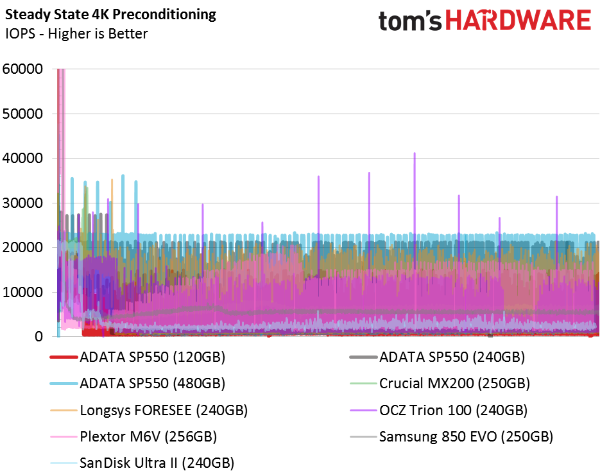
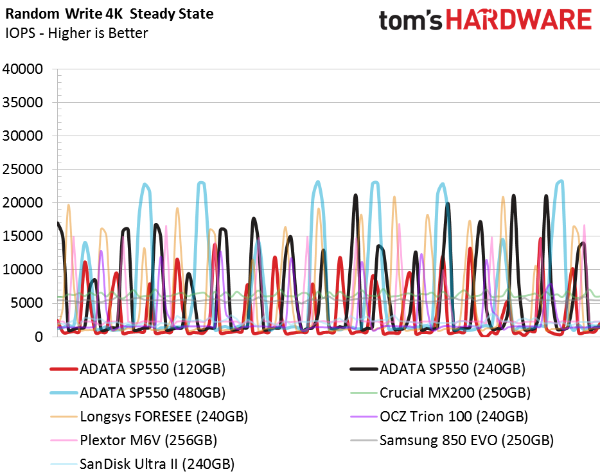
The preconditioning chart contains too many products to make out the 4KB random steady state separation. We use a second chart, which shows the final 100 seconds, for our analysis instead.
We wouldn't expect any of the low-cost drives on our chart to be good contenders for operation in a RAID array. Most of them demonstrate too much deviation between high and low random write performance. The SP550s, unfortunately, are no different.
Get Tom's Hardware's best news and in-depth reviews, straight to your inbox.
Current page: Mixed Workloads & Steady State
Prev Page Four-Corner Performance Testing Next Page Real-World Software Performance Testing
Chris Ramseyer was a senior contributing editor for Tom's Hardware. He tested and reviewed consumer storage.
-
Eggz A little boring, but I guess this would be good for a value build with an AMD chip for decent performance at a pretty low cost.Reply -
jjb8675309 The 240GB model is a good value but the 250GB EVO is going for $80 right now, I'd probably get that if faced with the choice.Reply -
Rookie_MIB Currently listing on Newegg for $42/$64/$119 for the 120/240/480GB.Reply
$119 for a good name-brand 480GB drive that performs decently enough is good to see, as a 1TB drive should come in right around the $200 mark.
The only thing is, and it's probably why the 960GB hasn't been released is that based on the performance of the 480GB drive they probably have to put in and validate a different controller. The 4 channel controller would just run out of bandwidth trying to handle all the data and would lose out on the parallelism which makes SSDs as fast as they are. So - they'd need an 8 channel controller for sure which might jump the cost a bit. -
zodiacfml If that's the conclusion then Adata has better SSDs compared to Crucial's latest drives. Samsung pretty owns the market due to being also a NAND manufacturer.Reply
